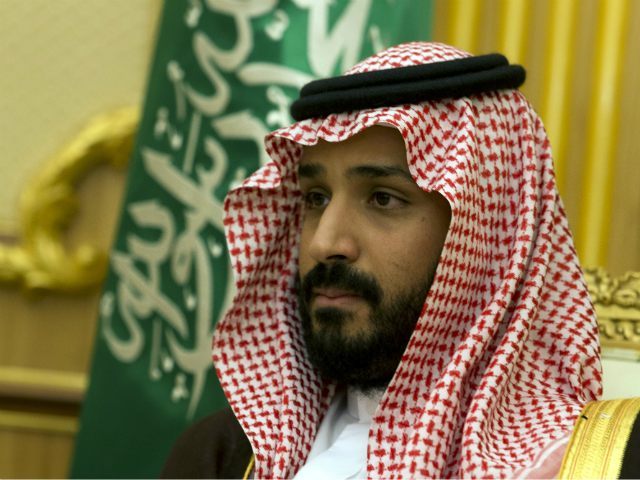EILAT, Israel – Saudi Arabia’s newly announced “Islamic military alliance,” purportedly created fight terrorism, continues to unravel.
Pakistani officials said on Wednesday the country was not consulted before the nation was announced as a member of the 34-country bloc.
A senior official in Pakistan’s Foreign Office told the Express Tribune the country was investigating the alleged alliance. “We came to know about it (the alliance) through news reports. We have asked our ambassador in Saudi Arabia to get details on it,” the official said.
The newspaper reported the comments suggest that Pakistan was taken by surprise by the Saudi announcement.
A separate Pakistani described as a senior government functionary told The Express Tribune that he could not confirm Pakistan’s participation in the Saudi anti-terror coalition.
“We have been cooperating with Saudi Arabia on counter-terrorism efforts but I am not sure we are going to be part of any military alliance,” said the official.
Added the Express Tribune:
He said Pakistan in principle had never joined any military alliance without UN backing. “That was the reason we stayed away from the Yemen conflict,” he said.
The official said Pakistan would not send its troops on foreign soil even if “we become part of this new coalition.” “But we have not yet officially articulated our position on this so wait and see,” he maintained.
Dawn, the Pakistani daily, also reported the country was taken by surprise:
Foreign Secretary Aizaz Chaudhry said he was surprised to read the news that Saudi Arabia had named Pakistan as part of the alliance.
He said he had asked the country’s ambassador in Riyadh to get a clarification from Saudi Arabia on the matter.
In another unusual twist of events, Lebanon’s Foreign Ministry on Tuesday denied knowledge of the new Saudi-led coalition, while Lebanese Prime Minister Tammam Salam made a statement implying his country was indeed an alliance member, Lebanon’s Daily Star reported.
Palestinian Authority tells Breitbart Jerusalem: ‘No One Here Knows What It is’
On Tuesday, Breitbart Jerusalem reported it was difficult to find a single Palestinian Authority official willing to publically comment on Saudi Arabia’s Islamic anti-terror alliance.
“Palestine” is listed as one of 34 Muslim nations who signed up to the new Muslim anti-terror coalition led by Saudi Arabia, which itself has long faced accusations of supporting Islamic extremist ideology.
Nabil Abu Rudaineh, the spokesman for Palestinian Authority President Mahmoud Abbas, told Breitbart Jerusalem he had no comment on the new alliance.
Breitbart Jerusalem directly phoned PA Foreign Minister Riyad al-Malaki, who also said he had no comment in the issue.
Breitbart Jerusalem spoke to one of the most senior officers in the Preventive Security Force, the PA’s main security organization. That officer was not even aware of the PA joining the new Saudi-led coalition until receiving the call from Breitbart Jerusalem.
The Preventative official phoned Breitbart Jerusalem minutes after the initial call to report that his agency has not been given any specific instructions about engaging in anti-terror activities with the Saudi coalition.
The official spoke on condition that his name be withheld for fear of being seen as publically criticizing Saudi Arabia. “No one here knows anything about what it is,” the official added.
Following inquiries from news media outlets, WAFA, the official Palestinian news agency, released a statement from the PA Presidency welcoming the creation of the Saudi coalition. “Palestine will be part of this coalition after consultations with Saudi Arabia,” the statement added.
The inclusion of “Palestine” already raises questions about the intentions of the Saudi alliance.
The PA regularly incites Palestinians to engage in violent attacks against Israelis. The PA’s official military wing, the Al Aqsa Martyrs Brigades, is listed by the State Department as a terrorist organization. The Brigades is responsible for scores of deadly shootings, suicide bombings and rocket attacks.
Saudi Arabia has been facing mounting international criticism for not doing enough to fight the Islamic State. It has long faced accusations of financing extremist Wahhabi mosques that promote and export terrorist ideology.
Deputy Crown Prince Mohammed bin Salman on Tuesday unveiled the coalition of 34 Muslim states, which he said would fight the Islamic State in Iraq, Syria, Libya, Egypt and Afghanistan.
He branded terrorism a “disease which affected the Islamic world first before the international community as a whole,” and vowed the Riyadh-based alliance will take on “the Islamic world’s problem with terrorism and will be a partner in the worldwide fight against this scourge.”
Besides “Palestine” and Pakistan, other members of the alleged 34-nation bloc include Turkey, the tiny African nation of Guinea, Jordan, United Arab Emirates,
Bahrain, Bangladesh, Benin, Turkey, Chad, Togo, Tunisia, Djibouti, Senegal, Sudan, Sierra Leone, Somalia, Gabon, Comoros, Qatar, Cote d’Ivoire, Kuwait, Lebanon, Libya, Maldives, Mali, Malaysia, Egypt, Morocco, Mauritania, Niger, Nigeria, and Yemen.
Notably absent from the list is Iran, an arch Saudi foe.
It was not immediately clear exactly what the Saudis are expecting of coalition members. Bin Salman stated the new alliance would have a joint command center in Riyadh purportedly to coordinate the fight against radical Islamic terrorism.
“Nothing is off the table. A number of countries are in desperate need of assistance,” Foreign Minister Adel al-Jubeir said.
“Terrorism has hit Islamic countries. It is time that the Islamic world takes a stand,” he told reporters in Paris.
Christopher Davidson, a professor at Durham University in the U.K. who specializes in Gulf affairs, told the Wall Street Journal he believes the new alliance was mainly devised as an avenue for Saudi Arabia to put out positive news regarding its own role in international affairs.

COMMENTS
Please let us know if you're having issues with commenting.